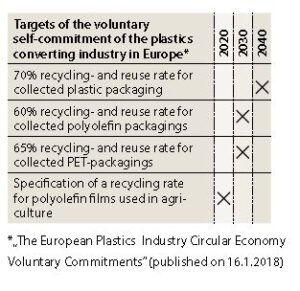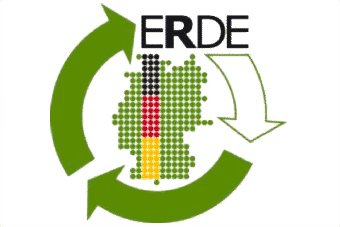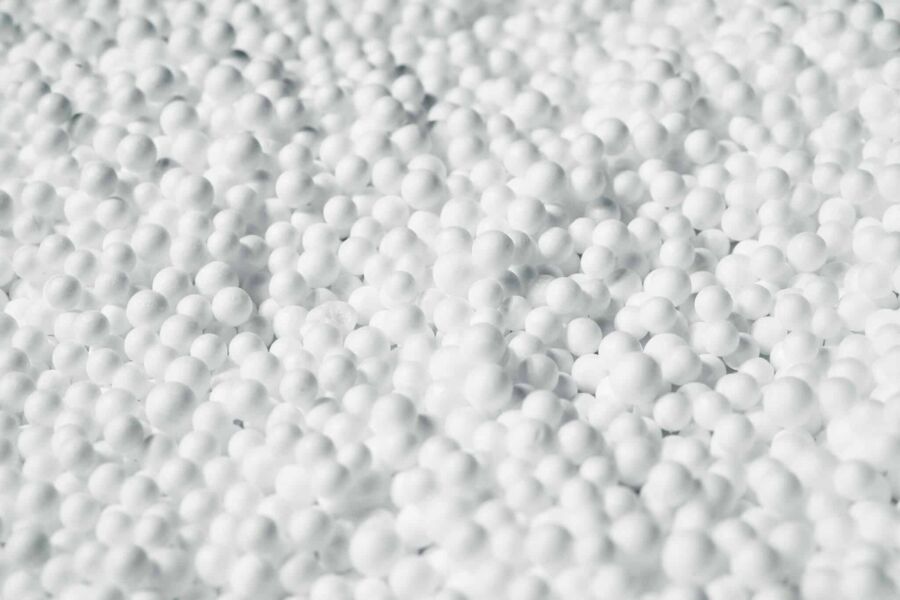-
Call for design for recycling
-
IK supports higher percentages of recycled material, subject to higher quality of recyclates and consumer acceptance
IK Industrievereinigung Kunststoffverpackungen e.V., the German Association for Plastics Packaging and Films, expressly welcomes the initiative of the European Commission to develop a future vision for the European plastics industry. In addition to this press release a detailed IK-position on the EU Plastics Strategy was published on 16th January, highlighting specific aspects. For the plastics packaging industry the design for recycling and the increased percentage of recycled material are the key elements of the far-reaching EU Plastics Strategy. Fighting global littering is of greatest interest to the industry to guarantee the future of sustainable plastics products.

Dr. Jürgen Bruder
“We especially appreciate the fact that the Commission has drafted a strategy which both includes and engages political decision-makers, the whole supply chain and the consumers”, says IK Managing Director Dr. Jürgen Bruder. “With the voluntary self-commitment of the plastics converting industry the environmental policy targets of the Plastics Strategy can be reached.”
Many of the stated requirements are in accordance with the position of IK. In Germany some of the required measures are already implemented or will soon become reality as part of the new Packaging Law.
Voluntary self-commitment of the plastics converting industry
The Plastics Strategy formulates the political aim that plastics packaging shall be recyclable or returnable by 2030 and

requires ambitious and voluntary self-commitments from the industry. As a member of the signatory associations European Plastics Converters (EuPC), Petcore Europe and Polyolefin Circular Economy Platform (PCEP), IK supports the voluntary self-commitment of the plastics industry, also published on 16th January, which sets an important impulse to implement the Plastics Strategy. The voluntary self-commitment contains concrete quotas for recyclability and multiple use with respect to the milestones 2020, 2030 and 2040. Of particular interest are polypropylene or polyethylene (polyolefin) packaging, constituting the biggest share of around 70% of the European plastics packaging market.
For comparison: in Germany already three quarters of all plastics packaging are recyclable. More than 50% of the plastics packaging for private consumers put onto the German market is recycled.
Strategic focus: recycling
In our view the target of the Plastics Strategy to expand recycling represents a chance for Germany and Europe to further strengthen the circular economy under ecological and economical aspects. After all, recycled plastics contribute to resource efficiency; they are cost-saving and widen the supplier base for packaging manufacturers. Accordingly, the industry is investing in research, development and production.
“IK sees possible further applications for recycled material mainly in consumer packaging, in the non-food area and in industrial packaging “, says Dr. Bruder. “Here the application potential is far from being reached”. However, for the time being poor quality and lack of availability are impeding the increased use of recycled material. Also the consumer himself plays an important role, especially with respect to waste separation.
„Moreover substantial investments in modern sorting plants are needed to manage the required quantities in the best possible way. We are pleased to see that such investments have already been started after the adoption of the Packaging Law”, concludes Dr. Bruder.
IK calls for a holistic view of plastics packaging
At the same time we would underline that despite the fact that recycling is an important aspect of the Eco Design, the Eco Design is far more than just recycling. For this reason IK considers that a holistic view of plastics packaging is missing in the Plastics Strategy which is focussing more on the end of life of the packaging and less on its benefit during use. Especially in its use phase plastics packaging contributes largely to resource efficiency and climate protection.



